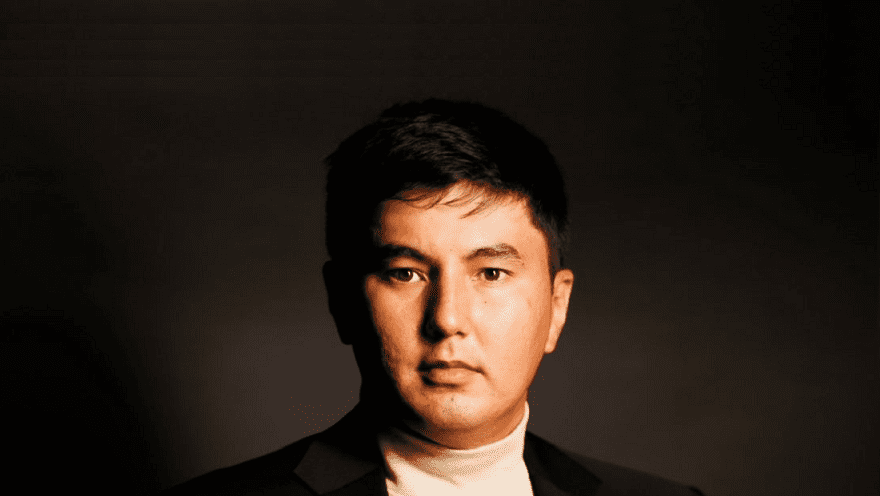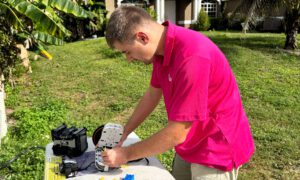Tengizchevroil has started oil production at a new third-generation plant (3GP) at the Tengiz field in western Kazakhstan, the world’s deepest supergiant field with the largest productive reservoir. 3GP is being implemented as part of the Future Growth Project (FGP) and is expected to bring production to record levels of up to one million barrels of oil per day. However, the plant’s significance goes far beyond increasing production: it is conceived as a model for the digital infrastructure of the future, where telecommunications ensure the sustainability, security, and efficiency of the entire ecosystem.
Tolegen Kulikov, a telecommunications engineer recruited for the Tengizchevroil project, winner of the prestigious international awards “Digital Infrastructure Leader” (NBA.Melonrich, 2023) and “Communications Engineer” (People Awards International, 2024), honorary member of the Gold Bar Asia Award jury (2024), author of a scientific paper on visual quality control of construction work during the installation of base stations using UAVs in a video system, participated in the implementation of communication solutions for FGP. His experience confirms that it is impossible to imagine the construction of a plant without modern communication technologies.
“Video surveillance, access control, internal LTE network — everything must work flawlessly and in isolation,” notes Tolegen. “Any mistake here can result in an environmental disaster.”
The scale of the digital part of the project is impressive: we are talking about hundreds of kilometers of fiber optic cable laid both underground and overhead. Each section of the route required engineering solutions—from adjustments to the basic design in changing terrain conditions to the replacement of components and materials for laying the lines. “Everything looks simple on the drawing board. But in reality, you have to take into account seasonal flooding, changes in the layout of facilities, and intersections with other engineering networks. We had to quickly find alternatives and make changes to the project,” notes Tolegen.
According to the engineer, special attention was paid to the implementation of channel backup systems and the construction of fault-tolerant solutions. “The oil and gas industry has strict requirements: downtime is unacceptable here. Every minute of failure can lead to financial losses or risks to human safety. Therefore, we set high standards for industrial safety and network stability,” he explains.
A closed LTE network is another element of this strategy. It has effectively become the plant’s own cellular operator, providing high-speed data transfer between systems, equipment, and personnel without access to external channels. This eliminates the risk of information leaks and allows operations to continue even in the event of external failures. “Having your own LTE network means managing all processes independently of external providers. This is not just about communication between people. The network also supports cameras, sensors, and production line automation. At a strategic facility of this level, having your own LTE network is a necessity,” Tolegen emphasizes.
Kulikov adds that hybrid architectures for integration with intelligent monitoring systems have become key technologies. Route redundancy and channel stability have made it possible to create solutions that can withstand the load of heavy industrial use. “In essence, the telecommunications infrastructure is the nervous system of the enterprise. The operation of automated control, dispatching, and security systems depends on its stability,” says Tolegen.
The world is rapidly transitioning to an environment where everything is connected via the internet: smartphones control household appliances, sensors monitor transport operations, and industrial facilities are controlled remotely.
“Working on the Tengizchevroil project taught me to think strategically: any decision must take into account not onlytechnical characteristics, but also long-term reliability, economic efficiency, and safety. This is experience that I still apply today,” Tolegen shares.
The third-generation plant at Tengiz demonstrates that success in the oil and gas industry today is determined not only by production volumes and the quality of digital infrastructure, but also by the involvement of experts such as Tolegen Kulikov.



































